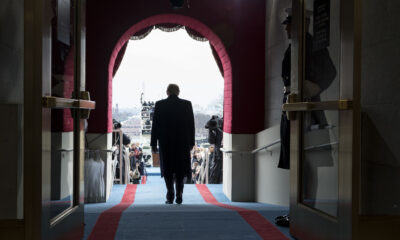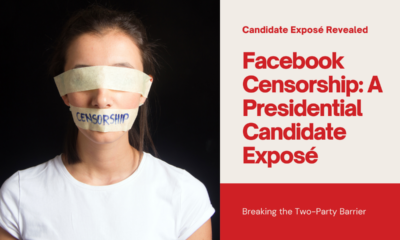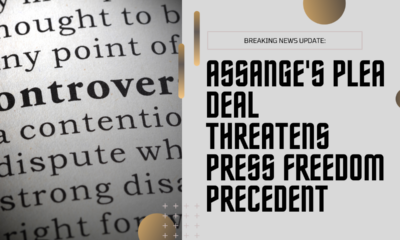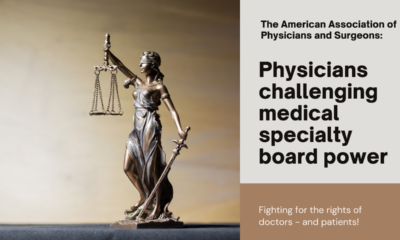Executive
This Week in Censorship | Feb. 26 – March 3
This week finds a dangerous idea gaining currency, that speech can be too free, and that the only cure for misinformation is censorship.
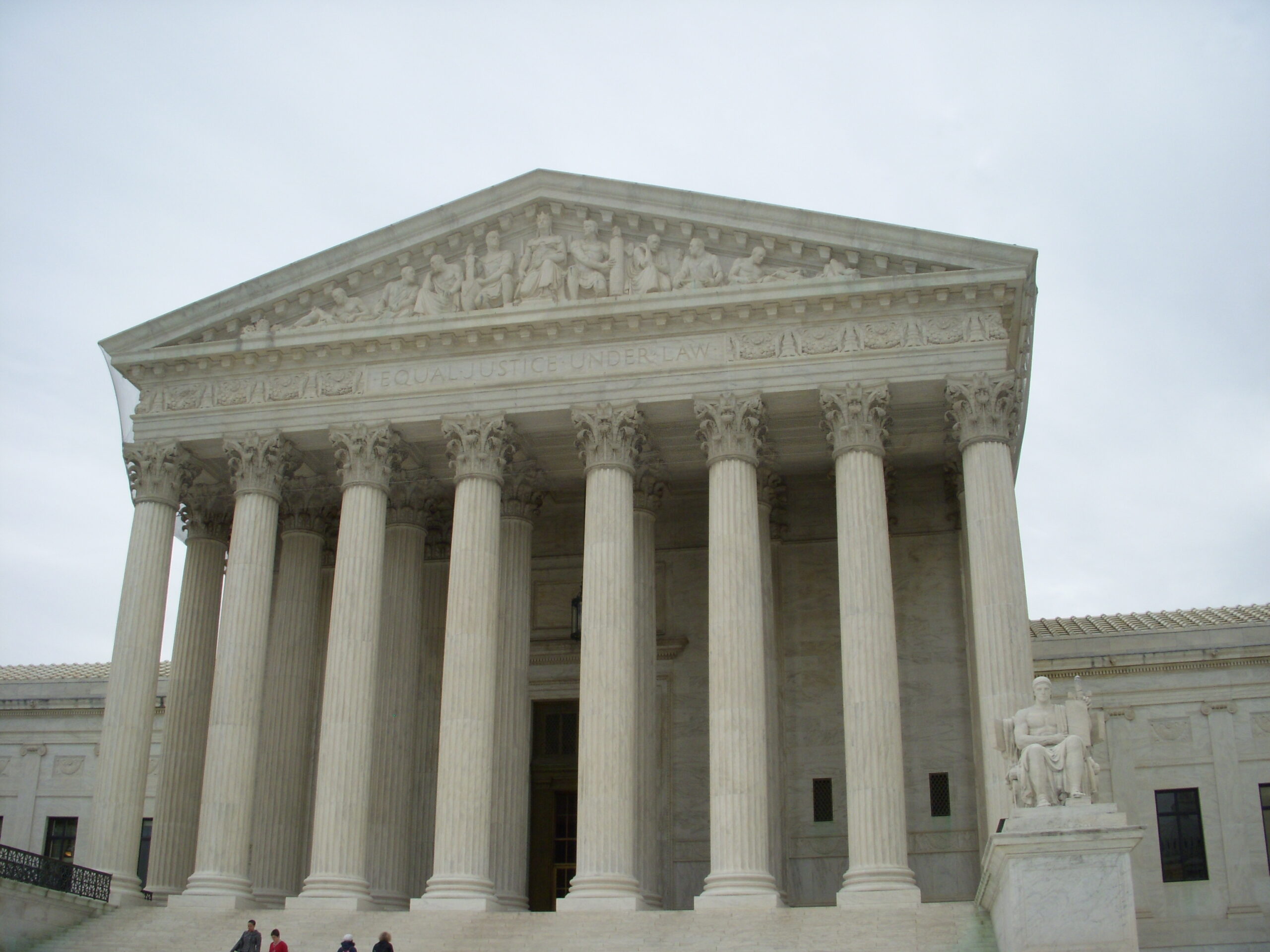
This week’s curation at RealClear Censorship began where last week’s ended: the inaugural RealClear Samizdat Prize, which will be presented on March 7 in Palm Beach, Florida. Salena Zito offered an excellent profile of the award and its inspiration in the Washington Examiner this week, quoting RealClear Foundation president and publisher David DesRosiers at length on the manifold threats posed to the First Amendment in our day. While the Pulitzer appears inert in the face of advancing threats to a free press, other awards, such as the upcoming RTDNA Free Speech Awards (emceed by Jen Psaki), openly mock the concept. The Samizdat has a narrow but essential purpose: to recognize and support those who stake their reputations on speaking important truths. The award takes its name from the network of clandestine publishers of material banned in the Soviet Union, and, as DesRosiers says, translates to “We publish ourselves.” Tickets for the event are available at the link above. We hope you’ll join us if you can.
Washington Examiner has done consistently strong reporting on the entanglements between the federal government and the private, non-profit misinformation industry, including Gabe Kaminsky’s groundbreaking revelations about the State Department’s funding of the Global Disinformation Index.
In her profile for the outlet, Zito referenced the most recent poll released by FIRE, which we republished this week on the page. The poll is the first installment of FIRE’s National Speech Index, “a new quarterly survey designed by FIRE and [the Polarization Research Lab at Dartmouth College] to measure support for the First Amendment and track how Americans think about the state of free speech in the country over time.” Participants were asked a series of questions about their opinions on the First Amendment and the status of free speech in the country. Just a quarter of respondents “think the right to free speech today is either ‘very’ or ‘completely’ secure,” while nearly a third believe that the First Amendment “goes too far” in its protection of controversial and upsetting speech. Over half of respondents agreed that a speaker who had previously expressed an offensive view should not be allowed to articulate that view publicly; more than two-thirds of respondents agreed that such a speaker should be disallowed from teaching at their local school or university. You can read the full results of the survey on the FIRE website.
Not only do 31% of FIRE respondents believe the First Amendment “goes too far” in protecting speech; MSNBC legal analyst Barbara McQaude, speaking with Rachel Maddow this week, claimed that the First Amendment leaves the U.S. uniquely vulnerable to misinformation and attendant social ills. McQuade explained that “all fundamental rights, including free speech, can be limited as long as there is a compelling governmental interest” in doing so. This is broadly true but patently absurd when used as justification to combat “misinformation.” Courts adjudicate these matters routinely, and the federal government has faced a series of rebukes in the last year for its censorship on social media, apparently finding the governmental interest uncompelling.
Indeed, the current Supreme Court term includes several consequential cases to do with the First Amendment and the government’s ability to meddle in online speech. Perhaps most high profile is Murthy v. Missouri (formerly Missouri v. Biden), which will be argued later this month. This week, Moody v. NetChoice and NetChoice v. Paxton were brought before the high court, each of which challenge laws in Florida and Texas, respectively, that enable the government to dictate how social media platforms enact their content moderation practices. While the laws were written in response to a perceived anti-conservative bias on social media, they permit an unconstitutional level of governmental restriction on private speech, explicitly limiting how a given platform can “block, ban, remove” or otherwise sanction user content.
Writing for Reason this week, J.D. Tuccille summarized the hearings and reinforced a crucial distinction in the debate over free speech online, that between editorial bias and government censorship. Bias is inevitable on a privately owned and operated platform. It should be avoided, but it should not be criminalized. It is only when the government plays a role in enforcing bias that it becomes illegal. This is what reporting like the Twitter Files is actually about; not the disfavoring of conservative speech per se, but the intrusion of the federal government into private speech at all. Correcting for biased content moderation with increased state presence in the moderation process not only misses the mark but breaks the law.
Tuccille reports that both laws will very likely be slapped down by the court. Justice Kagan questioned the Florida Solicitor General on how, exactly, the law as written in his state wasn’t a clear violation of the First Amendment, “when the state is preventing the platforms from making their own editorial judgments.” Justice Kavanaugh seemed to agree with this line, as did Justice Coney Barret. “If the Supreme Court lives up to expectations,” Tuccille writes, “the result should be a First Amendment victory.”
We round this week’s curation out with a thorough summary of the origination of the so-called “Censorship Industrial Complex,” written by Margot Cleveland for The Federalist. Cleveland, The Federalist’s Senior Legal Correspondent, traces the network of federal bureaucracies that spawned out of the war on terror as they morphed into agents of state-sponsored domestic censorship. The election of Donald Trump, in Cleveland’s analysis, provided these agencies with a new threat to train their weapons on.
Cleveland’s piece echoes Jacob Siegel’s seminal essay in Tablet last year, “A Guide to Understanding the Hoax of the Century,” a near book-length study of the governmental apparatuses that have been retooled in the last decade to serve as censorship liaisons with the private sector. Siegel and Cleveland tell overlapping, complementary stories about the rise of “misinformation” as a concept and political bludgeon.
If you’re unable to join us on March 7, you can look forward to a recounting of the Samizdat Gala’s key moments in next week’s newsletter. The awards will be followed by a discussion of free speech and censorship between the honorees moderated by Dave Rubin. There’s much to discuss!
This article was originally published by RealClearPublicAffairs and made available via RealClearWire.
Charlie Tidmarsh writes for Real Clear Public Affairs
-

 Executive4 days ago
Executive4 days agoSecret Service chief gets no solace
-

 Executive2 days ago
Executive2 days agoWaste of the Day: Louisville Taxpayers Pay Nearly $600,000 For Empty Building’s Maintenance, Security
-

 Guest Columns4 days ago
Guest Columns4 days agoFear Itself: Democrats’ Favorite Strategy Caused Their Current Chaos
-

 Executive3 days ago
Executive3 days agoWhere is Joe Biden – or Jill?
-

 Executive1 day ago
Executive1 day agoWaste of the Day: Throwback Thursday: Cities Used Crime Prevention Funds on Soccer Games, Paper Shredding
-

 Civilization4 days ago
Civilization4 days agoBuild Iron Dome in the United States To Prepare for Israel’s Worst Day
-

 Executive2 days ago
Executive2 days agoFacile and politically motivated suggestions
-

 Executive4 days ago
Executive4 days agoThe Emerging GOP Plan To Beat Kamala Harris



